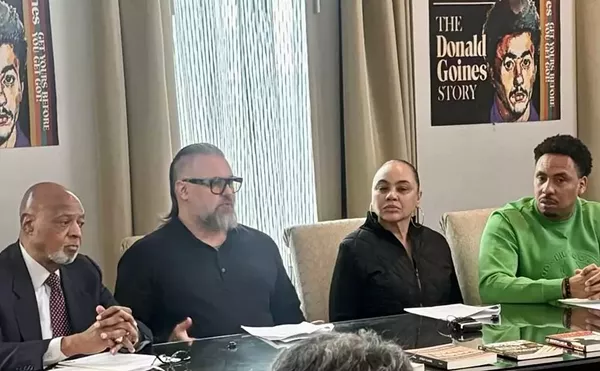The extent of one’s interest in this modest documentary, assembled by director Michael Almereyda, will be dependent on an interest in, in descending order, playwright Sam Shepard, acting and/or the theater. Almereyda, who directed the modern-setting Hamlet film a few years back (it starred Ethan Hawke and featured Shepard as Hamlet’s father), was asked by the playwright to record the San Francisco rehearsals of a (mostly) all-star production of his new play, The Late Henry Moss. Shepard is directing his play and curiosity about how he handles his actors is increased by the fact that they include Nick Nolte, Sean Penn, Woody Harrelson and Cheech Marin. It’s a look at the creative process, but it’s also star-gazing.
Since it’s not a troubled production (or no more troubled than any other), there are no displays of unseemly temperament or prima donna demands, just a lot of intensity, brooding and insecurity. So we’re denied the usual titillations associated with behind-the-scenes looks at famous performers; we must settle for the film’s essential seriousness instead. The rehearsal process is painstaking. We see the actors worrying over line readings, over maintaining some kind of truth in their performances, over getting from A to B in a dramatically meaningful way. We also get interview tidbits, with Penn confiding that he first heard the clarion call when he beheld the zippered boots worn by veteran character actor Anthony Zerbe when he visited Penn’s high school. Nolte reveals that a “nervous breakdown” he suffered as a teenager led to an interest in the Stanislavski method of building a character. But Shepard’s plays are full of verbal duels which lead to emotional squalls and, despite the star power here, the actor who seems to be giving the most fascinatingly baroque performance — the most quintessentially Shepard-ish — is the little-known James Gammon.
Most of Shepard’s plays are emotionally, if not factually, personal, and Henry Moss, like many of them, is about the disorder left behind by his father, a volatile alcoholic whose life ended in a senseless road accident. Almereyda occasionally leaves the rehearsals to allow Shepard time to tell his father’s story and discuss his relationship to him, which gives added depth to the portions of the play we actually see. The film is somewhat fragmented and the process by which a play comes to stage life remains a bit obscure, but we get glimpses and the glimpses are very interesting.
Showing at the Detroit Film Theatre (inside the DIA, 5200 Woodward Ave., Detroit), Monday, Aug. 9, at 7:30 p.m. Call 313-833-3237.
Richard C. Walls writes about film for Metro Times. E-mail [email protected].






